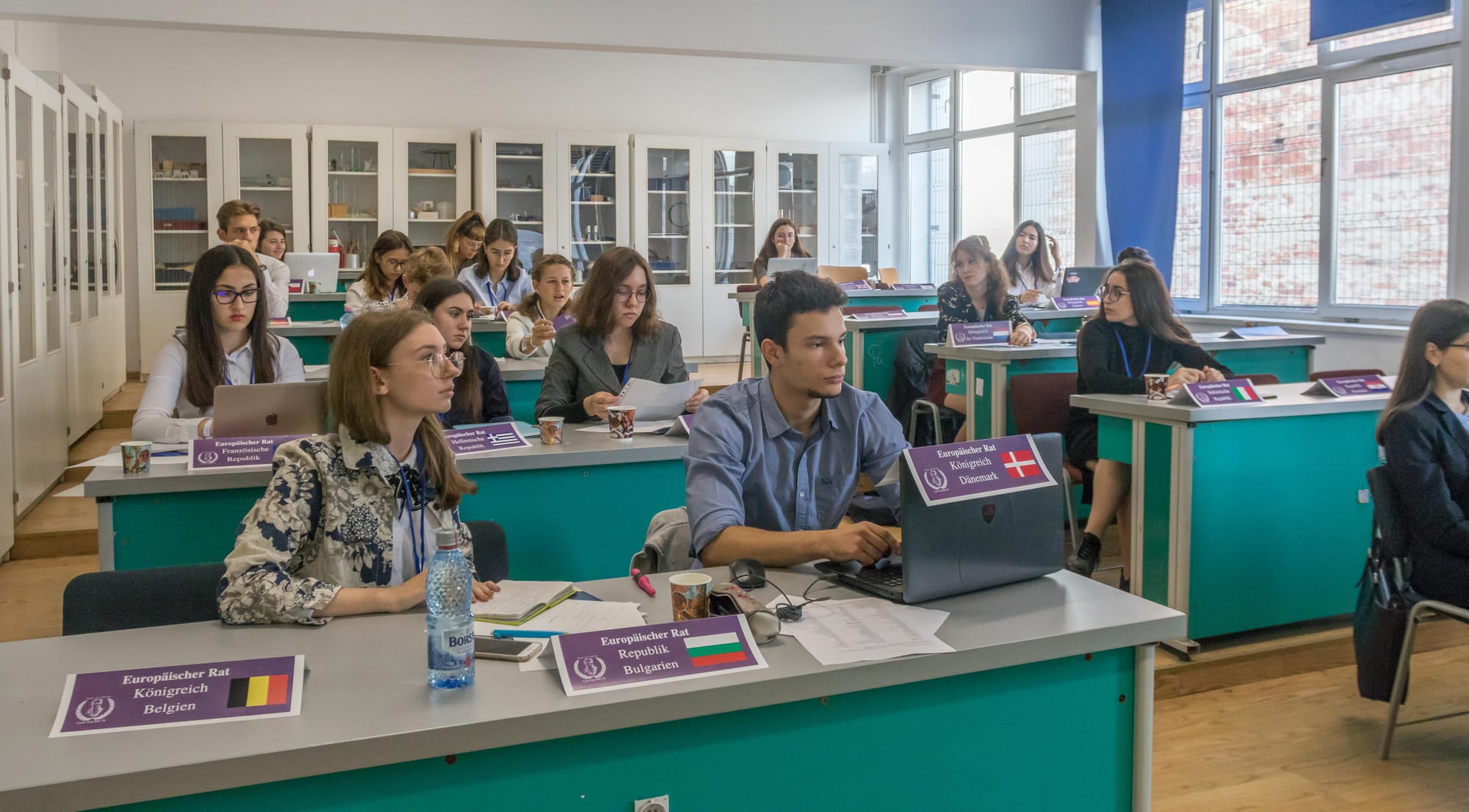The European Council, day 2

By Superhero Sidekick Duo, Diana Marcu and Silvia Stan
The German committee tackled a very prevalent issue in today’s Europe: BREXIT. The UK themselves kicked it off, followed by protest from Denmark, who insisted there be a second referendum to renegotiate Britain’s status within the EU. Most delegates directly echoed Denmark’s beginning statement, reiterating the point that was previously made in each of their individual speeches. Finland, a delegate with a very factual, tactical approach to the debate, stated that all countries would be at a loss after Britain’s hard exit, England included, whose bank would lose 25% of all actions.
Finland issued a direct attack at the expense of the UK, calling it selfish for not considering the effects of their rash decision-making, only acknowledging personal benefit.
France hopes to secure their trading market by attempting to persuade England into future business collaborations, specifically calling out the fish trading market.
It is about at this point that the facts stop and the bickering begins. Strap in.
One of the chairs, Bogdan, urged the delegates to start a more diligent discussion and to address the elephant in the room: BREXIT is one month away. He reminded the delegates of material they had received from him and insisted they use it. The UK delegate stated the final decision on the topic at hand had already been made and haggling for other options would be simply pointless. Instead, they should perhaps address the effects of this decision and counter any negative outcomes. Finland backed this claim up by demanding the UK share their expectations upon their exit.
Sweden did attempt to spice up the discussion by pointing out the heavy losses in work places, the elegant matter-of-factly approach to her argument being so tactful, you would’ve believed her even had you not listened.
The chair’s critique motivated Portugal to speak up and ask the British delegate about the inconsistencies in their demands, given that they are keen on having a hard BREXIT, but equally insistent in maintaining good relationships with the EU and having access to their large trading market, these being trades of a soft BREXIT. The Czech Republic followed in Portugal’s footsteps and called out Britain on borrowing money from the EU and not returning it. Britain defensively reminded the board of the country’s harsh circumstances and asked for understanding regarding the financial issues.
The discussion came to a close after one of the chairs said it was going in circles and never brought in any new information, setting off a chain reaction. Some of the delegates abruptly switched off the German in favour of Romanian, Portugal causing a ruckus and Hungary calling one of the chairs, Bogdan, by his name; his first one no less.
The debate quickly took a turn for an unmoderated caucus, which was very much called for, at which point we decided to leave them to it.
